Philippines: Climate resilience
Currently, we operate in some of the most poverty-stricken and climate-vulnerable regions in the country, including Northern Samar and Northern Mindanao, where we provide access to renewable energy capable of powering households and livelihoods.
Eastern Samar was the first province to receive the storm and thus suffered the brunt of the force of Typhoon Haiyan. With the destruction of farmlands also came the destruction of the people’s sources of income, leaving them with no other option to resort to besides negative coping mechanisms such as taking on debt, ultimately increasing their poverty and food insecurity.
Our goal is to enhance the resilience of vulnerable communities and their capacity to manage the impacts of future disasters. In addition, we help small, local civil society organizations in Northern Mindanao, empowering them to play a stronger role in public decision-making processes. Our aim is to promote more inclusive, transparent, and accountable governance and development processes in the Philippines that better respond to the needs of its citizens.
Past aid programmes
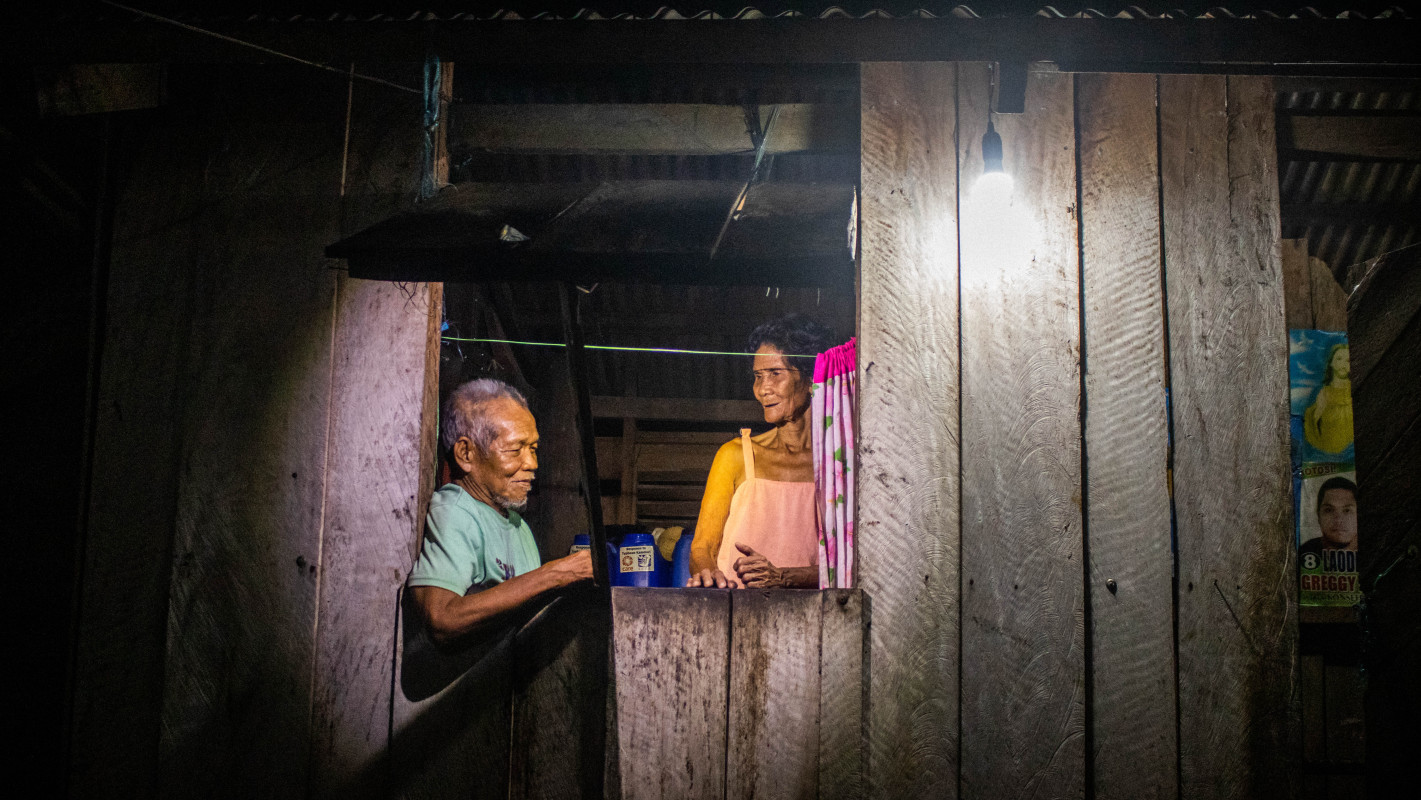
Providing renewable energy access for off-grid communities and households
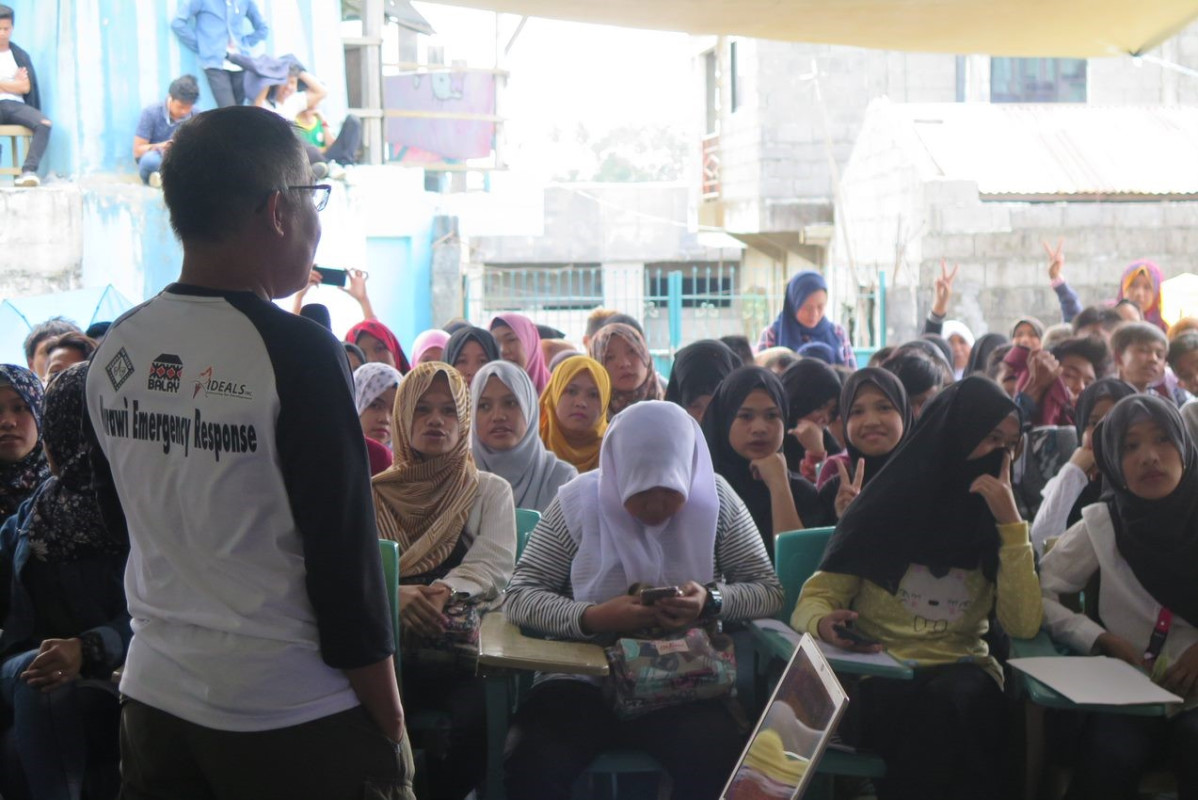
Enhancing employability of internally displaced young people through apprenticeship
Although people began to return after the fighting died down, Marawi remained half-empty. A project in was launched in two peri-urban areas near Marawi (Tuca and Bangon) to continue humanitarian support to students after the crisis. By increasing students´ and young people´s capacities and improving their employability, the project aims contribute towards preventing recruitment by extremist groups.
The project’s main activities include awarding conditional grants based on the development of business plans. The students participate in a 2-2.5 month cycle of vocational education (e.g. baking, cooking, construction, etc.), business skills, and coaching before the grant is awarded. They have flexibility in planning their own business activities.
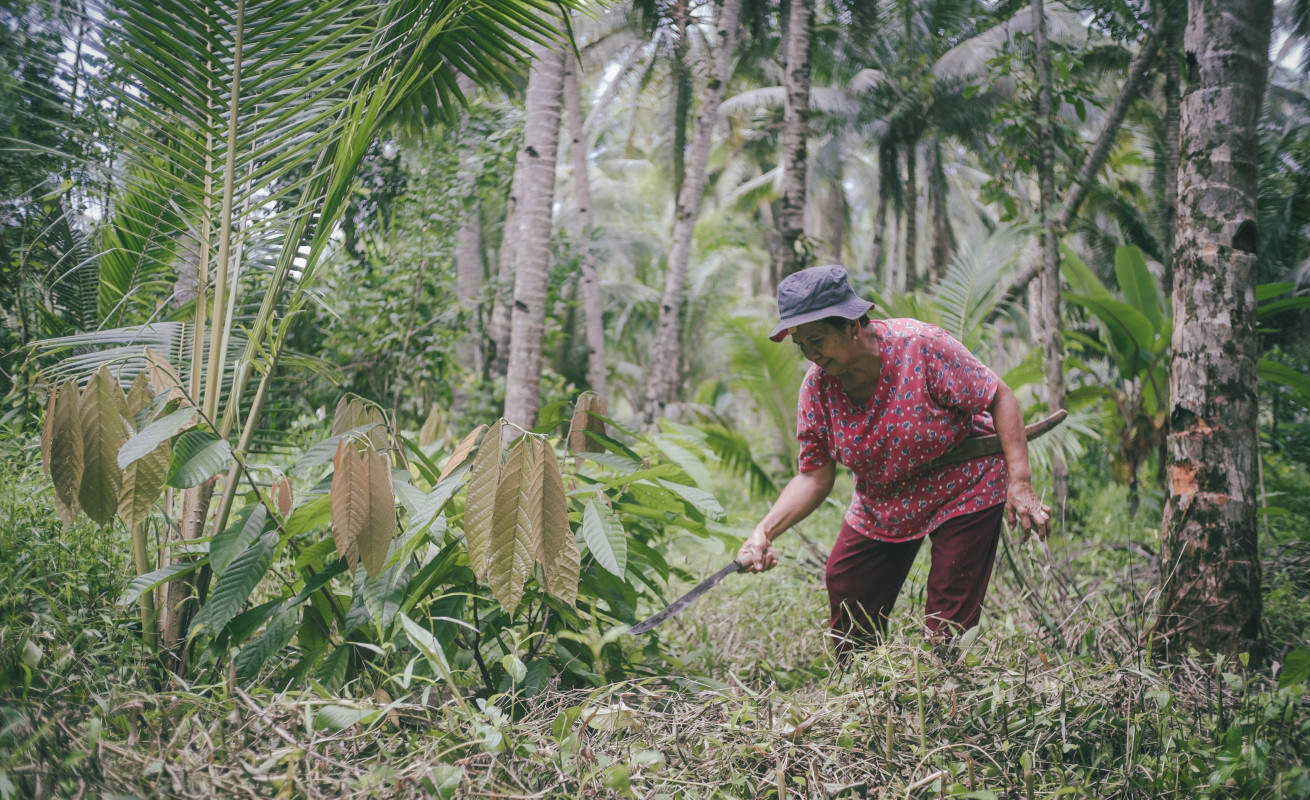
Increased resilience for poor farmers through enhanced cacao production in Eastern Samar
Eastern Samar is one of the poorest regions of the Philippines. It is particularly prone to natural disasters and has a very underdeveloped market system. The Project, funded by New Zealand’s Ministry of Foreign Affairs and Trade, believes that cacao farming and processing is a key activity to tackle these challenges and to increase local farmers’ condition.
By investing in cacao production, the Project sets the ambitious objective of increasing the sustainable income of more than 1,000 Eastern Samar farming households, at the same time improving climate and economic resilience. During a three-year period, many key relevant activities will take place, such as capacity building of farmers, delivery of trainings, establishment of agribusiness enterprises and creation of a sustainable, inclusive market.
Global demand for cacao is constantly growing, together with its price, and Eastern Samar is now fully ready to take this opportunity.
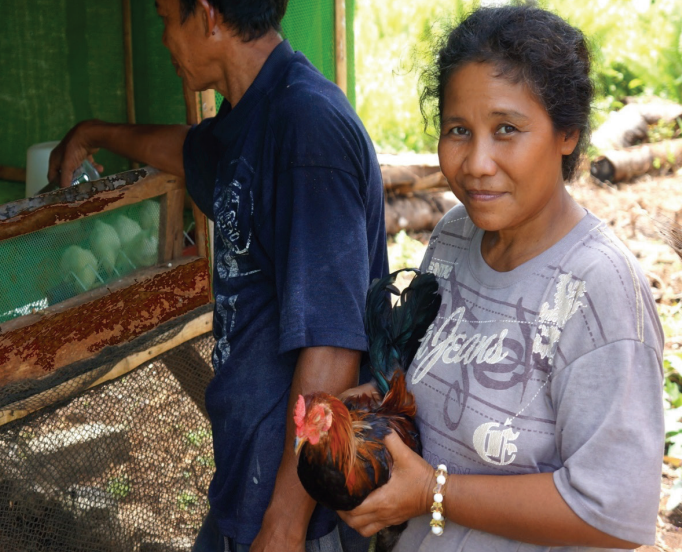
Enhancing Sustainable Income in the Philippines
The successes and experience gained during the first phase of the project, “Making markets work for farmers I (2015 – 2017)” now form the basis of a subsequent phase. The project continues to work towards securing a sustainable system of services in the agriculture sector. The project also focuses on increasing capacities of local producers, and introducing effective coordination and communication tools among farmers and suppliers in the region.
One of these newly established platforms is “Harampang” (meaning “a friendly chat” in Waray Waray) which facilitates dialogue and exchange of views between government agencies, local governments, service providers, farmers’ cooperatives and the private sector.
The project also offers support to young farmers and newly established agricultural holdings that need to register, or gain a licence and certification, to start their business.
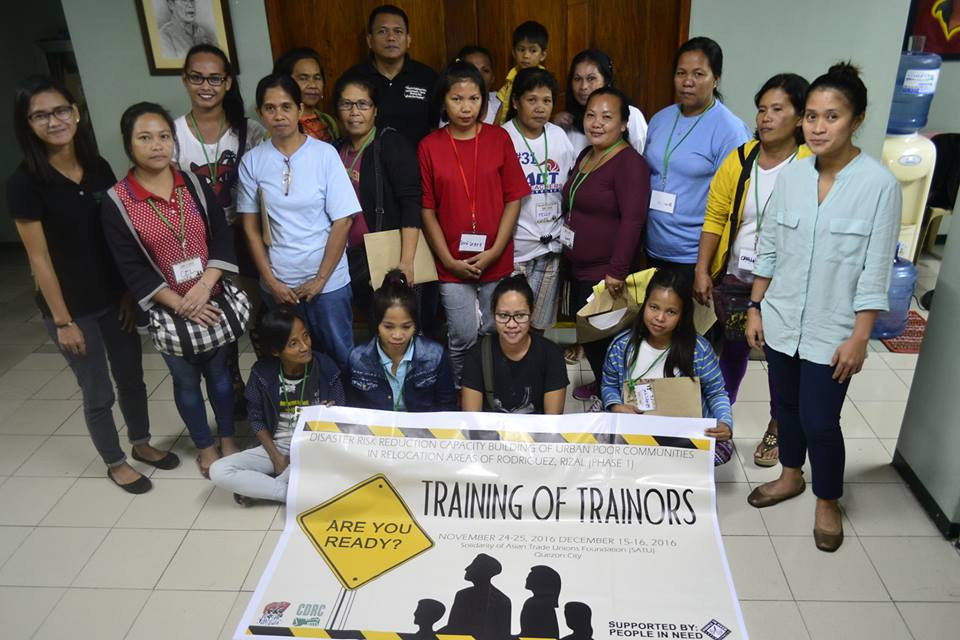
Interventions for Urban Poor in Metro Manila
The Philippines is well known for its Disaster Risk Reduction (DRR) planning from the national to municipal level. However, smaller municipalities often do not have the necessary expertise to have adequate DRR plans in place. This problem is exacerbated at a community level, such as in relocation sites. Many of these sites are built on cheap land that is prone to natural disasters such as floods and earthquakes. As a result, many internally displaced people (IDPs) return to suburban slums.
Since 2017, the project has involved meetings with local government, workshops focusing on community based disaster management, and community vulnerability assessments. The goal is to establish an early warning system, and a counter disaster preparedness plan.

Making markets work for farmers I.
A project aiming to restore livelihoods of local farmers affected by typhoon Haiyan was introduced in Eastern Samar in January 2015, in cooperation with Helvetas Swiss Intercooperation and supported by Swiss Solidarity. The project focuses primarily on increasing production and supply of farmers´ products for local and regional markets. This approach, called Market Systems Development, favours connecting local providers over giving direct services and inputs, creating a more sustainable system.
The project has established 77 demonstration plots and equipped 3,000 farmers with skills and knowledge on cultivation of high value crops. The project has also trained 34 local service providers (LSPs) who reached 13,000 farmers in 12 municipalities.
The project also introduced an improved breed of buffalos for the development of dairy products in Eastern Samar. Late in 2016, the radio programme OMG (Oma, Merkado, Gobyerno) launched to serve as a platform to disseminate market information and technical advice and discuss government agricultural policies.




